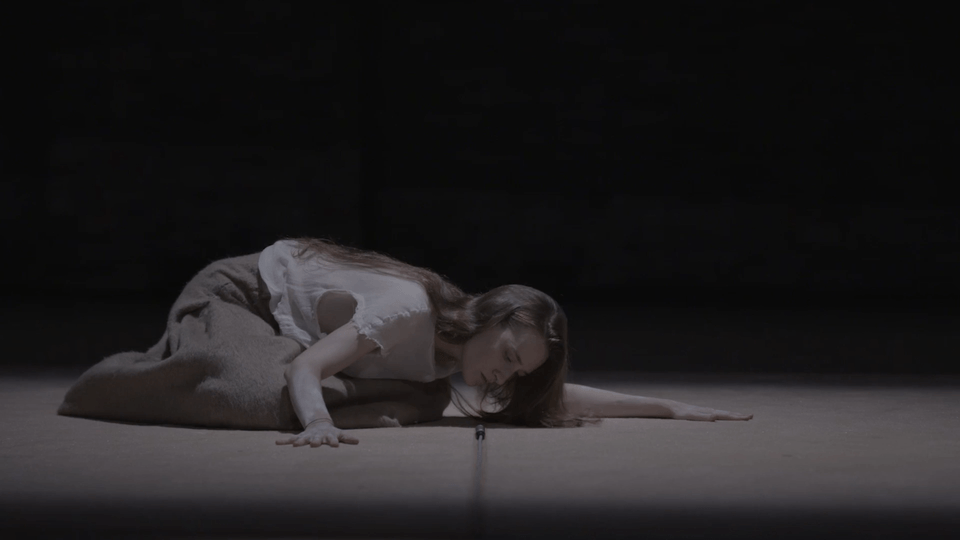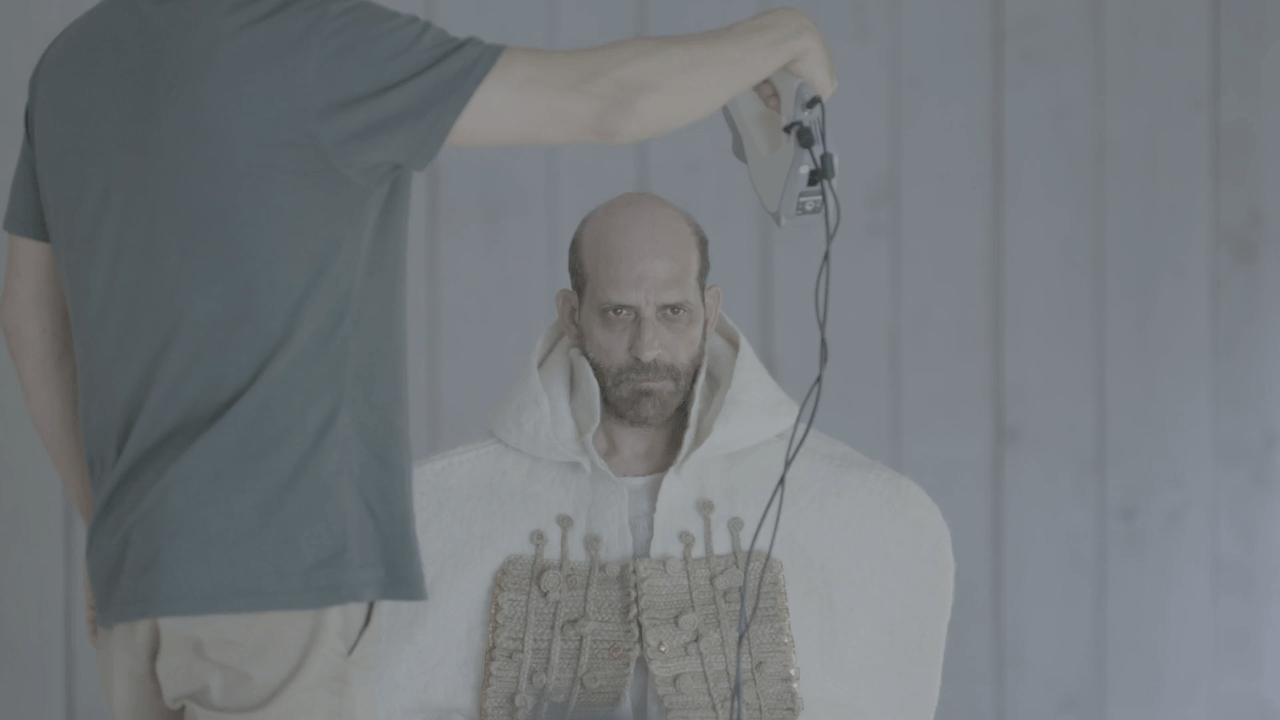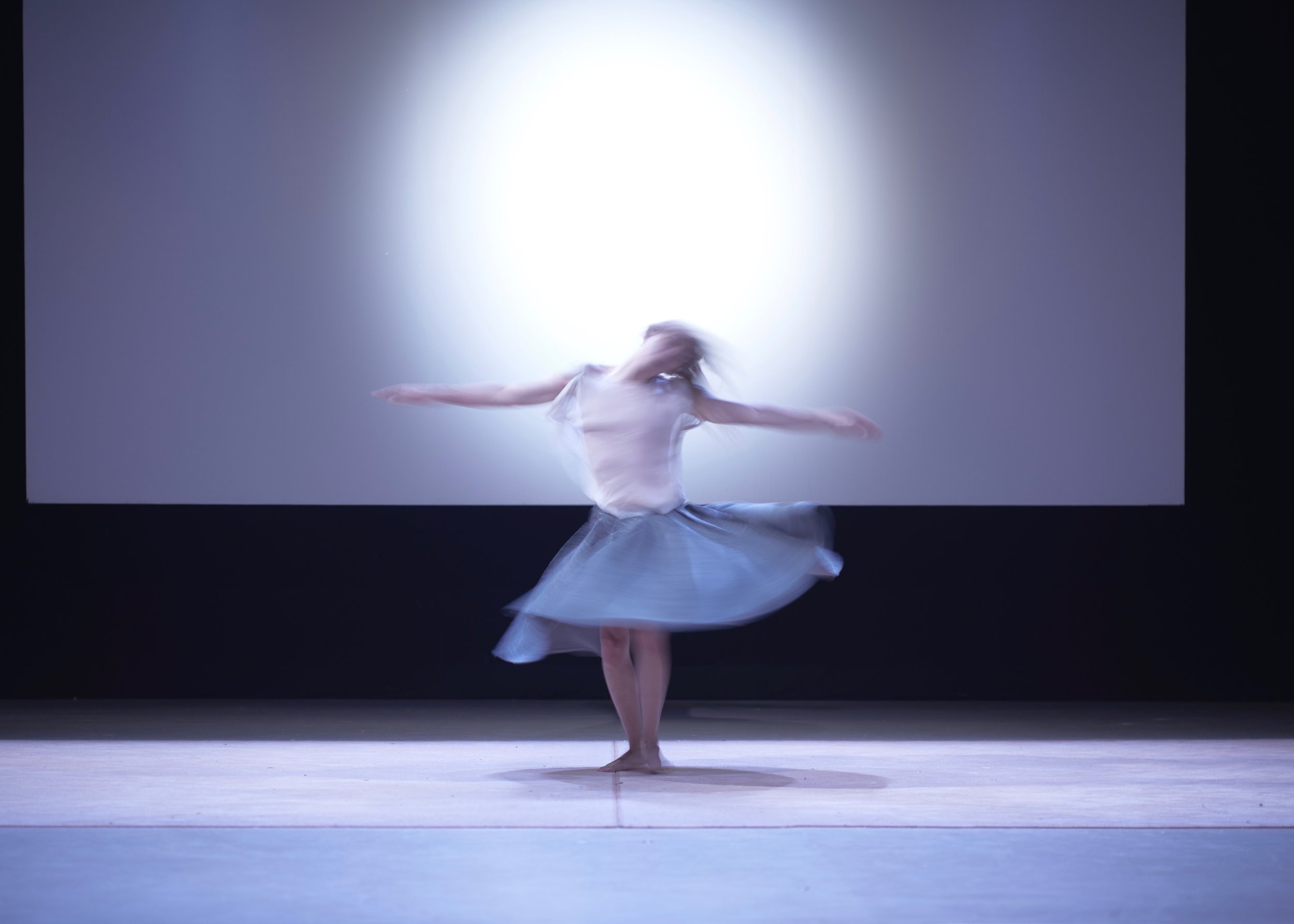


I Greci hanno inventato l’idea che l’essere finisca nel niente, sprofondando per sempre l’Occidente nel dolore. La filosofia nasce per portare rimedio a questo dolore che sta alla base dell’Occidente: per noi ogni cosa che muta transita per una fine assoluta, un annientamento totale che ci toglie il fiato e ci rende folli. La conseguenza tremenda di questa follia è che ogni esistenza percepisce la minaccia dell’annientamento ed è pronta a osare tutto. Eschilo, con il suo teatro che inizialmente è pratica filosofica, è il primo nella storia a dire no per mezzo del pensiero, un no assoluto a questo dolore. Oggi a noi mancano categorie in grado di farci percepire la scossa del sacro con cui il cittadino ateniese assisteva alle rappresentazioni tragiche. Anagoor affronta l’Orestea di Eschilo a partire da questa distanza incommensurabile.
The Greeks invented the idea that existence ends in nothingness, plunging the West into pain forever. Philosophy was born to remedy this pain that underpins the West: for us, everything that changes passes for an absolute end, a total annihilation that takes our breath away and renders us mad. The tremendous consequence of this madness is that every existence perceives the threat of annihilation and is ready to risk everything. Aeschylus, with his theatre, initially a space for practising philosophy, is the first in history to say no, to think no, an absolute no to this pain. Nowadays, we lack the categories to help us to perceive the “shock of the sacred” that theatre-going Athenian citizens would have experienced during the Tragedies. Anagoor confronts Aeschylus’ The Oresteia from this immeasurable distance.

Il re di Argo torna dalla guerra vittorioso e carico di ricchezze. L’Orestea si apre con un capitolo tremendo, l’Agamennone, che non nasconde le colpe di un potere che per conseguire i propri obiettivi non evita di sacrificare i beni più preziosi, la felicità, gli affetti più cari. Il trono di Argo si erge su un cumulo di cadaveri di figli: il cumulo delle ricchezze ricavate dalla conquista è prezzo pagato con il sangue. Su questo coacervo di violenza pregressa e continua, che vede nello scambio di valori (ori/esistenze) il suo primo motore, l’errore primigenio, si innesta una catena di episodi cruenti dettati della cultura della vendetta e che, esplodendo furiosamente in seno alla famiglia, formano la trama dolorosa dell’Orestea: un padre uccide la figlia, una sposa uccide lo sposo, un figlio uccide la madre.
The king of Argos comes back from war, victorious and laden with riches. The Oresteia begins with a frightful chapter, Agamemnon, which does not hide the guilt of an unsacrificing power. A power that in order to achieve its objectives, is unafraid of renouncing the most precious things: happiness and the dearest of affections. The throne of Argos rises from a heap of the corpses of lost sons: the accumulation of riches obtained through conquest is paid in blood. A chain of bloody episodes emerges from an amassed and continuous violence that finds in an exchange value (gold for existence) its first driving force and its first primordial error. Founded on a culture of revenge, that furiously explodes within the breast of the family, these episodes form the plot of The Oresteia: a father kills his daughter, a wife kills her husband, a son kills his mother.
Il teatro di Eschilo è un teatro del pensiero, anello di congiunzione tra mito, festa ed esercizio della filosofia. Teatro del pensiero come filosofia pratica e collettiva, capace come un giano bifronte di guardare dalla sua posizione aurorale tanto alla notte che precede il sorgere della città, quanto alle contraddizioni sottese alla nascita della politica. Un guardare insieme a occhi aperti l’orrore, l’errore dello scambio dei valori, l’inconciliabilità delle scelte, il sacro che svela le strettoie.
Aeschylus’ theatre is a theatre of thought, a link between myth, feast and philosophical practice. It is theatre as practical and collective philosophy, that, like a two-faced Janus, from its auroral position, is able to look both at the night that precedes the rise of the city, and at the contradictions underlying the birth of politics. An open-eyed look at the horror, the error of exchange value, the irreconcilability of choices, the sacred that reveals its trajectories.
“Non c’è magia che ci liberi dal male che ci hanno lasciato in eredità i nostri genitori.”

Eschilo rappresenta nella storia della compagnia un punto di partenza, il porto da cui si è salpati, più che l’approdo al termine della navigazione. L’origine del nostro viaggio alla ricerca di un vocabolario teatrale per descrivere le macerie dell’Occidente scaturisce da un’immersione bruciante nella poesia e nel sistema filosofico di Eschilo di cui l’Orestea rappresenta la summa incendiaria, un laboratorio fondativo durato dal 2004 al 2008. Eschilo è insieme il porto di partenza e il vascello da cui continuiamo a osservare le coste devastate del mondo.
Aeschylus represents a starting point in the history of Anagoor, the port from which the company sailed, not the anchoring at the completion of its voyage.
The starting point of our journey, in search of a theatrical vocabulary to depict the ruins of the Western world, originates in a searing immersion in Aeschylus’ poetry and philosophical system. The Oresteia is its incendiary summation, a foundational workshop which lasted from 2004 to 2008. Aeschylus is both the port of departure and the vessel from which we continue to observe the devastation of the world.
Percepire la scossa del sacro che l’evento teatrale era in grado di risuscitare nell’ateniese del V secolo, lasciandolo sgomento, oggi non è possibile. Nondimeno, pur misurando tutta la distanza che ci separa dall’incredibile fatto artistico, religioso, filosofico che la tragedia attica rappresentò in quel breve lasso di tempo in cui si manifestò, e, accogliendo la possibilità di convertire la consuetudine del pensiero, forse possiamo ancora afferrare la necessità che lega la ricerca della Giustizia alla visione metafisica del mondo. Solo riconsegnando a questa tragedia la sua vertiginosa natura metafisica possiamo cogliere in modo non banale le questioni della fondazione politica sottese. Questo nostro lavoro è un’opera sull’Orestea di Eschilo, prima che una riduzione o un trattamento della stessa.
Nowadays, it is impossible to perceive the “shock of the sacred” that a theatrical event could evoke in a Fifth Century Athenian. Today it is not possible to leave an audience stunned in quite the same way. Nevertheless, while measuring the distance that separates us from the incredible artistic, religious and philosophical experience that ancient tragedy was, and while accepting the possibility of converting our mode of habitual thought, perhaps we can still grasp the necessity that links the search for justice to a metaphysical view of the world. Only by restoring its soaring metaphysical nature to this tragedy is it possible to accept the underlying questions of political foundation in a way which is not banal. Ours is not simply a reduction or adaptation but rather a work upon Aeschylus’ tragedy The Oresteia.

ANAGOOR
ORESTEA
AGAMENNONE / SCHIAVI / CONVERSIO
On Aeschylus’ Oresteia
dramaturgy
Simone Derai, Patrizia Vercesi
translation from Greek
Patrizia Vercesi, Simone Derai
line of thoughts
S. Quinzio, E. Severino, S. Givone, W.G. Sebald, G. Leopardi, A. Ernaux, H. Broch, P. Virgilio Marone, H. Arendt, G. Mazzoni
with
Marco Ciccullo, Sebastiano Filocamo, Leda Kreider, Marco Menegoni, Gayané Movsisyan, Giorgia Ohanesian Nardin, Eliza G. Oanca, Benedetto Patruno, Piero Ramella, Massimo Simonetto, Valerio Sirnå, Monica Tonietto, Annapaola Trevenzuoli
messenger's voice
Pierdomenico Simone
dance
Giorgia Ohanesian Nardin
music and sound design
Mauro Martinuz
Gustav Mahler’s Kindertotenlieder n.1 played by
Massimo Somenzi
set and costume design
Simone Derai
costumes
Serena Bussolaro, Christian Minotto
accesories
Christian Minotto, Massimo Simonetto, Silvia Bragagnolo
mobile scultpure
Istvan Zimmermann e Giovanna Amoroso – Plastikart Studio
video
Simone Derai, Giulio Favotto
video / camera, cinematography, post-production
Giulio Favotto
light design
Fabio Sajiz
technical assistance
Mattia Dal Bianco
project assistance
Marco Menegoni
assistant director
Massimo Simonetto
direction
Simone Derai
organization
Annalisa Grisi
management and promotion
Michele Mele
production
Anagoor 2018
supported by
Fondation d’entreprise Hermès within the framework of the New Settings Program
coproduction
Centrale Fies, Teatro Metastasio di Prato, TPE – Teatro Piemonte Europa, Teatro Stabile del Veneto
with the participation of
Theater an der Ruhr
with the support of
Compagnia di San Paolo
technical sponsors
Lanificio Paoletti, Printmateria, 3DZ
thanks to
Hellenic Ministry of Culture and Sports, Archaeological Museum of Olympia, Italian Cultural Institute of Athens, Lottozero / textile laboratories
photographic credits
Giulio Favotto
live video shot by
Giulio Favotto, Daniele Costa, Marco Sgarbossa
full live video editing and post production
Simone Derai, Marco Sgarbossa, Marco Menegoni, Mauro Martinuz, Giulio Favotto
trailers edited by
Andrea Pizzalis, Simone Derai














